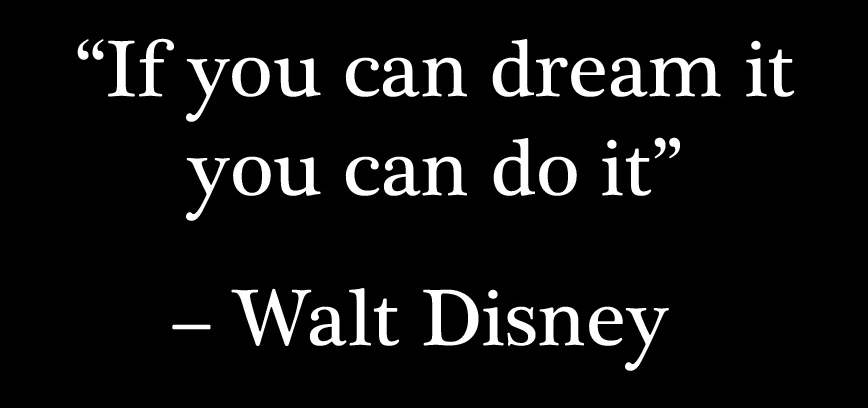Blog Post
Why be Grateful in this disaster?
noreply • June 27, 2020

Many days this pandemic has me peeking around corners looking for Rod Serling because our whole planet seems like a very bad episode of the Twilight Zone. Information flying around from zillions of sources that mainly contradict each other. Wear a mask, don’t wear a mask. Not more dangerous than the flu, killer of grandmothers.
Adding to the anxiety that comes with uncertainty, we are also faced with an unprecedented economic crisis. With no comforting end in sight. How will we meet our obligations? What if my company closes for good? Do I have to go to work if I am compromised? What if…….
And let’s add to that a social crisis that is boiling over. Division and Fear seem to be everywhere and that often expresses itself in rage. People are at the end of their ropes and can’t see a way forward. Ka Boom.
When first hearing about practicing gratitude I dismissed it as a silly Polly-Anna view of life. I mean, there are real hard facts of life that are inescapable. Better keep my eye on that lest it take over and really muck things up..
So, when I ran across a couple of blogs that talked about gratitude, I quickly clicked away. What on earth do I have to be grateful for. Lost income, distance from friends and family, heartbreaking news several times a day? And worse, for me, is the loss of civil and rational discourse about our predicament.
Though I clicked away, I kept coming back to an article I read last year that talked about the actual changes to the brain that occur when we are feeling grateful.
For me, this makes dismissing the benefits of Gratitude less easy. These beneficial results of practicing gratitude are now, thanks to modern science, actually measurable. Your brain changes. And not in just an anecdotal way. Just what I need now.
Don’t know who said it, but it is true. That is not to say that what happens is not bad and does not impact you in a severe way. When bad things happen, and continue to happen, the natural response is to surrender to “what I cannot control”. Expected emotions of hurt, anger, outrage, sadness and even depression are all real. And you cannot deny them.
HOWEVER, you can choose how you move forward. You can wallow in your inaction and self-pity or you can choose another path. A path that can have a real and long-lasting impact on you and your life.
This is where Gratitude comes in. It is hard at first to find anything to be grateful for. But there are things you are grateful for. There are all those things that sound so sappy, like “happy to just be alive”, “grateful for my family”, etc., and there are more specific, personal things like “grateful for having the ability to pursue my dream”, “grateful for having the support of friends”.
In many ways practicing Gratitude is a skill, a learned behavior. And the more you use it, the more it becomes a habit that comes naturally. (Wallowing is a habit too. But, maybe it is time to move away from it!) Don’t be fooled thinking those sappy things to be grateful for don’t have an impact, because they do.
Some of the benefits, in addition to brain changes, include: determination, attention, enthusiasm, and energy. Gratitude can improve the symptoms of depression and general overall attitude. Multiple studies have confirmed the benefits. Google just a few!
So what exactly is Gratitude?
Adding to the anxiety that comes with uncertainty, we are also faced with an unprecedented economic crisis. With no comforting end in sight. How will we meet our obligations? What if my company closes for good? Do I have to go to work if I am compromised? What if…….
And let’s add to that a social crisis that is boiling over. Division and Fear seem to be everywhere and that often expresses itself in rage. People are at the end of their ropes and can’t see a way forward. Ka Boom.
When first hearing about practicing gratitude I dismissed it as a silly Polly-Anna view of life. I mean, there are real hard facts of life that are inescapable. Better keep my eye on that lest it take over and really muck things up..
So, when I ran across a couple of blogs that talked about gratitude, I quickly clicked away. What on earth do I have to be grateful for. Lost income, distance from friends and family, heartbreaking news several times a day? And worse, for me, is the loss of civil and rational discourse about our predicament.
Though I clicked away, I kept coming back to an article I read last year that talked about the actual changes to the brain that occur when we are feeling grateful.
When the brain feels gratitude, the parts of the brain that are activated include the ventral and dorsal medial pre-frontal cortex. These areas are involved in feelings of reward (the reward when stress is removed), morality, interpersonal bonding and positive social interactions, and the ability to understand what other people are thinking or feeling.
Gratitude also has the capacity to increase important neurochemicals. When thinking shifts from negative to positive, there is a surging of feel-good chemicals such as dopamine, serotonin and oxytocin. These all contribute to the feelings of closeness, connection and happiness that come with gratitude.
Gratitude also has the capacity to increase important neurochemicals. When thinking shifts from negative to positive, there is a surging of feel-good chemicals such as dopamine, serotonin and oxytocin. These all contribute to the feelings of closeness, connection and happiness that come with gratitude.
Karen Young, HeySigmund.com
You Don’t Control What Happens,
You Control How You Respond
Don’t know who said it, but it is true. That is not to say that what happens is not bad and does not impact you in a severe way. When bad things happen, and continue to happen, the natural response is to surrender to “what I cannot control”. Expected emotions of hurt, anger, outrage, sadness and even depression are all real. And you cannot deny them.
HOWEVER, you can choose how you move forward. You can wallow in your inaction and self-pity or you can choose another path. A path that can have a real and long-lasting impact on you and your life.
This is where Gratitude comes in. It is hard at first to find anything to be grateful for. But there are things you are grateful for. There are all those things that sound so sappy, like “happy to just be alive”, “grateful for my family”, etc., and there are more specific, personal things like “grateful for having the ability to pursue my dream”, “grateful for having the support of friends”.
In many ways practicing Gratitude is a skill, a learned behavior. And the more you use it, the more it becomes a habit that comes naturally. (Wallowing is a habit too. But, maybe it is time to move away from it!) Don’t be fooled thinking those sappy things to be grateful for don’t have an impact, because they do.
Some of the benefits, in addition to brain changes, include: determination, attention, enthusiasm, and energy. Gratitude can improve the symptoms of depression and general overall attitude. Multiple studies have confirmed the benefits. Google just a few!
So what exactly is Gratitude?
While studies show a clear benefit of gratitude, it also makes a clear distinction. Realizing that other people are worse off than you is not gratitude. Gratitude requires an appreciation of the positive aspects of your situation. It is not a comparison. Sometimes noticing what other people don’t have may help you see what you can be grateful for, but you have to take that next step. You actually have to show appreciation for what you have, for it to have an effect.
Alex Korb, Ph.D.
There are lots of ways to begin to practice Gratitude. So you can start right away!
Write a thank you note. To anyone for anything! Seems sappy, I know. But, think about how you felt when someone took the time to say thanks. Were you offended? Think the other person is a loser? Or, more likely, you smiled and felt good.
- Write down things you are thankful for. Get a journal, start a file on your laptop and add to it daily, (weekly would work too, only more slowly).
- Write down things that made you feel good. Not jump up and down good, just those things that gave you a tiny feeling of joy.
- Say thank you! Be specific. For example, “Thanks for meeting with me” could be more impactful with “You are so busy, I just want you to know how grateful I am for making time for me”. The benefits are for you and the recipient of the thanks.
The pandemic and its impact will eventually fade and we will have a new normal. And that new normal can include a happier you!
Share
Tweet
Share
Mail

By Linda Horstmyer
•
April 23, 2021
This post is the fourth in a series where I want to share some of the things I have learned over the course of my career. It has been varied in terms of industry and the customers served and has given me many valuable lessons along the way. I hope to benefit my clients with advice, ideas and cautions as a way of contributing to my local community. Next up was a sink or swim introduction to the early years of the internet. My love of travel, and startups, lead me to a new subsidiary of a large travel wholesale group in Ft. Lauderdale. Certified Vacations offered wholesale travel packages in addition to running Continental Airlines Vacations and (CAV) Delta Airlines Vacations (DAV). I want to work for New River Technologies (NRT) which was the internet arm for Certified. Fast and furious, my experience with NRT was exhilarating! I managed a large staff of web designers and we crafted dynamic websites for CAV, DAV and countless others. Understanding client needs and goals and translating them into the digital environment was a challenge in this new form of communication. Key was understanding how people wanted to learn about and book travel. Early on we developed relationships with Microsoft, Priceline, Expedia and other emerging online travel sellers and, looking back, the experience was absolutely thrilling. To say that the pace was fast is an understatement! I was hooked. Somehow, I had to figure out how to leverage my marketing, advertising and communications background into a dream job. A short stop with Sunglass Hut, before they were bought by Luxottica, honed my skills for effective communications with retail customers. We launched a new, and very innovative, website for sunglass sales that, like other startups, was full of challenges in every department. We were a small group and gathered in a small area, we all learned a lot about each area of the business. The programming side of websites has evolved so far from some of the early days I am grateful have been witness to the genesis of what is now a highly technical process. 2000 was a big year and was highlighted by a move to Small Business Ownership. Stay tuned!
Serving the Treasure Coast and SE Florida Stuart, FL
772.214.1048
Monday - Friday 9:00 - 6:00




